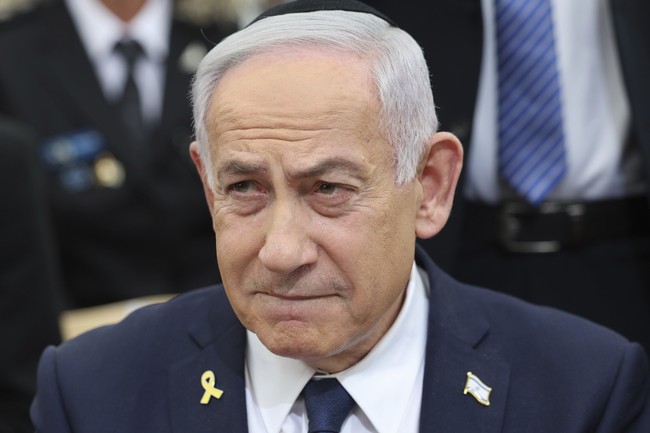
Hmmm. Earlier today, rumors swirled that Donald Trump told Benjamin Netanyahu that he wanted to end not just the war with Iran but all of the conflicts in the region. Nothing firm emerged yet from those rumors, but this video message from the Israeli PM certainly sounds as though Netanyahu may be looking for the same thing.
In Hebrew, Netanyahu declared that victory over Iran means that a “rare moment of opportunity” had arisen to “expand the circle of peace.” The release of hostages might be enough, Netanyahu suggested:
Netanyahu is hinting at ceasefire deal in Gaza:
“Our tradition teaches: “The Lord gives strength to His people; the Lord blesses His people with peace.”
We fought with strength, and prevailed over Iran. This victory creates a real opening to expand the circle of peace. We are… https://t.co/6c5dPoPGjV pic.twitter.com/HtGuqhDoVe
— Open Source Intel (@Osint613) June 26, 2025
“Our tradition teaches: “The Lord gives strength to His people; the Lord blesses His people with peace.”
We fought with strength, and prevailed over Iran. This victory creates a real opening to expand the circle of peace. We are pursuing it with determination.
Together with bringing our hostages home and defeating Hamxs, we now face a rare moment of opportunity. We must not miss it. Not a single day can be lost.”
Why would Netanyahu want to “expand the circle of peace” with Hamas? Netanyahu promised to ensure that every member of Hamas as of the October 7 massacres would be a “dead man walking.” He may have no choice but to come to some sort of agreement to get the remaining hostages out, but with Iran crippled, Netanyahu actually has more room to pursue Hamas, politically as well as militarily. And Hezbollah too, and the IDF has picked up the pace in striking Hezbollah’s remaining locations in southern Lebanon this week.
The phrase “circle of peace” may not mean Gaza, however. It may be a reference to the Abraham Accords and the potential expansion of that “circle.” Yesterday, Israel Hayom reported that the White House may arrange to include Syria and Lebanon to the Abraham Accords, both of which would be a stunning reversal from the last several decades:
President Donald Trump’s signature Middle East agreement — the Abraham Accords — which normalized relations between Israel and Sunni Gulf States and North African countries, might absorb new candidates, according to Steve Witkoff, Trump’s special envoy to the Middle East.
“We think we will have some pretty big announcements on countries that are coming into the Abraham Accords,” Witkoff told CNBC in an interview on Wednesday.
One of the largest Hebrew-language outlets, Israel Hayom, reported Tuesday that Israeli National Security Advisor Tzachi Hanegbi believes those countries are Syria and Lebanon as the top Middle East states who could join the Abraham Accords.
The big enchilada here is still Saudi Arabia, which seems determined to be the final adopter of normalized relations with Israel but who has played a major part in getting other Sunni Arab nations to join. However, if both Syria and Lebanon join up, it would be a stunning reversal of decades of Iranian influence in the region. On October 7, Iran’s proxy Hezbollah had firm control of Lebanon’s government and acted as palace guards for Bashar al-Assad in Syria. Hezbollah is a shadow of its former self, and Iran’s been exposed as a paper tiger without its proxies, and having both of its satellite countries align with Israel would provide even more evidence to Iranians that the mullahcracy has no claim to divine authority.
Of course, to get there, Netanyahu will need to cut a deal that will likely leave Hamas in Gaza. And it might be worth letting Hamas off the hook a bit, assuming all the hostages get released, just to use this as a new humiliation for the mullahs of Tehran, not to mention what this will mean for the remnants of Hezbollah clinging to life in Lebanon.
What kind of deal will Netanyahu get on the hostages? Egypt reportedly has a new proposal and wants to call all negotiators back to the table. If Netanyahu can get alliances with Lebanon and Syria based on current borders — including Israel’s long-standing control of Golan — then they may be more flexible on the short-term outcome of leaving Hamas in Gaza to get it. If that’s the case, though, expect Netanyahu to be firm on controlling the Philadelphi Corridor to keep Hamas from smuggling new arms and missiles into the territory, and perhaps work harder to get clans to unite and conduct their own war against Hamas.
Perhaps the end is near for the hostages’ plight, closer than we could hope, and that’s because of Iran’s utter humiliation.












